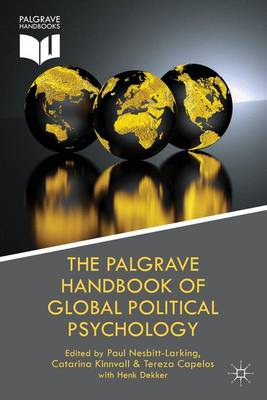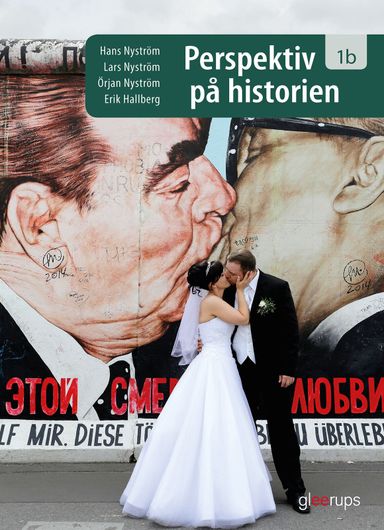

The Palgrave Handbook of Global Political Psychology Upplaga 2014
- Upplaga: 2014e upplagan
- Utgiven: 2014
- ISBN: 9781137291172
- Sidor: 475 st
- Förlag: Palgrave Macmillan
- Format: Inbunden
- Språk: Engelska
Om boken
This ground-breaking collection recalibrates the study of political psychology by providing a detailed and much needed analysis of the discipline's most important and hotly contested issues. Advancing our understanding of the psychological mechanisms that drive political phenomena, this study showcases a range of approaches in the study of these phenomena in Europe and the world and underscores the valuable contribution political psychology has made in generating answers to timely research questions. Individual chapters from the world's top experts in the field explores the ways in which political psychology impacts on issues as diverse as migration, conflict and violence as well as electoral politics while also situating the discipline within the realm of political decision-making and policy on important debates relating to foreign policy and relations, political participation and terrorism amongst a variety of other issues.Furthermore, the collection offers analytical illustrations of Social Identity Theory, psychoanalytic approaches, Dialogical Self Theory, Social Representations Theory and Self-Categorisation Theory, allowing for an in-depth engagement across theoretical contributions to the field. Using theoretical and methodological approaches in conjunction with empirical evidence, this Handbook maps the diverse field of political psychology in its entirety and explores its future direction. The resulting volume is a KEY addition to the libraries of all those who study or harbour an interest in political psychology.
Åtkomstkoder och digitalt tilläggsmaterial garanteras inte med begagnade böcker
Mer om The Palgrave Handbook of Global Political Psychology (2014)
I oktober 2014 släpptes boken The Palgrave Handbook of Global Political Psychology skriven av H Dekker, C Kinnvall, T Capelos, P Nesbitt-Larking. Det är den 2014e upplagan av kursboken. Den är skriven på engelska och består av 475 sidor. Förlaget bakom boken är Palgrave Macmillan som har sitt säte i London.
Köp boken The Palgrave Handbook of Global Political Psychology på Studentapan och spara pengar.
Referera till The Palgrave Handbook of Global Political Psychology (Upplaga 2014)
Harvard
Dekker, H., Kinnvall, C., Capelos, T. & Nesbitt-Larking, P. (2014). The Palgrave Handbook of Global Political Psychology. 2014:e uppl. Palgrave Macmillan.
Oxford
Dekker, H, Kinnvall, C, Capelos, T & Nesbitt-Larking, P, The Palgrave Handbook of Global Political Psychology, 2014 uppl. (Palgrave Macmillan, 2014).
APA
Dekker, H., Kinnvall, C., Capelos, T., & Nesbitt-Larking, P. (2014). The Palgrave Handbook of Global Political Psychology (2014:e uppl.). Palgrave Macmillan.
Vancouver
Dekker H, Kinnvall C, Capelos T, Nesbitt-Larking P. The Palgrave Handbook of Global Political Psychology. 2014:e uppl. Palgrave Macmillan; 2014.



















